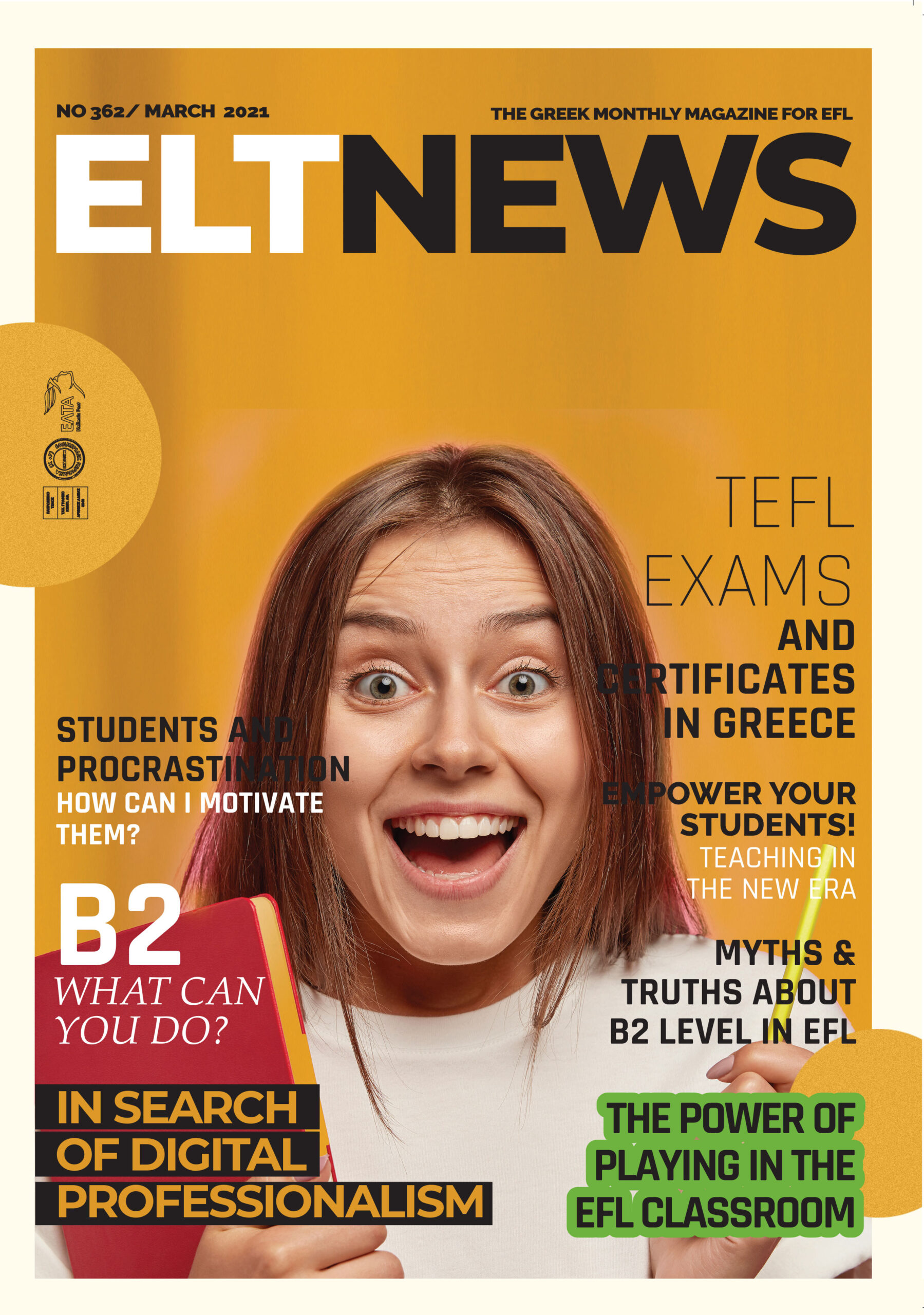A couple of months ago, I was having lunch with some friends. After lunch I was approached by the host’s daughter, a beautiful teenage girl. She would sit for a B2 exam in May and she was not sure which one to take. She needed advice. I asked her if she had ever heard of the Common European Framework. She hadn’t.
I agree with Maria Davou (read her article in the Feature Section) that very few teachers check the ‘Can Do’ statements before deciding to enter candidates for a B2 or any other level exam.
We went to her room, turned on her computer and we looked through, one by one, the ‘Can Do’ statements in all language skills for the B2 level.
‘Can you do this?’
‘I am not sure.’
‘Can you do that?’
‘I don’t think so.’
‘Then you are not ready yet. Wait till next year.’
‘But I don’t have time…’
‘What do you mean?’
‘Next September I’ll start preparation for the university entrance exams.’
‘Can’t you take the B2 level exam later, as a university student?’
Unthinkable
‘But all my classmates take the B2 level this year…and my parents want me to ‘finish’ English now…’
Does it sound familiar? You can’t swim against the stream.
We all know that B2 level corresponds to a more advanced, more independent level than the previous ones. At B2 users can communicate easily and spontaneously in a clear and detailed manner. They are not yet experienced speakers, but they are able to understand and be understood in most situations. They can express themselves naturally, easily and effectively and take the initiative to speak. But they are also able to understand and correct their own mistakes, foresee what they will say and how they will say it.
Level B2 is the fourth level of English in the Common European Framework of Reference (CEFR), a definition of different language levels written by the Council of Europe. In everyday speech, this level might be called “confident”, as in “I am a confident English speaker”. The official level descriptor is “upper intermediate”. At this level, students can function independently in a variety of academic and professional environments in English, although with a limited range of nuance and precision.
What can you do with a B2 level in English?
A B2 level would allow you to function in the workplace in English, and indeed, many non-native English speakers in international workplaces have this level. A person working in English at a B2 level will, however, lack nuance particularly outside his/her own field. S/he may also miss some of the subtleties and implied meanings in conversation.
According to the official CEFR guidelines, someone at the B2 level in English:
- Can understand the main ideas of complex text on both concrete and abstract topics, including technical discussions in his/her field of specialization.
- Can interact with a degree of fluency and spontaneity that makes regular interaction with native speakers quite possible without strain for either party.
- Can produce clear, detailed text on a wide range of subjects and explain a viewpoint on a topical issue giving the advantages and disadvantages of various options.
While a user with a B2 CEFR level is quite good, many times there is no connection between what businesses and individuals expect of a language assessment test.
There are two main reasons why an individual language test taker may have not achieved a B2 level: language learning and language readiness. Both are neither congruent nor strong enough. This can often come from language teachers who place more significance on rote learning.
Language readiness means that learners are able to perform well in the five “C” goal areas (Communication, Cultures, Connections, Comparisons, and Communities). That is to interact and negotiate meaning in spoken, or written conversations to share information, reactions, feelings, and opinions; to understand, interpret, and analyze what is heard, read, or viewed on a variety of topics. To present information, concepts, and ideas; to inform, explain, persuade, and narrate on a variety of topics using appropriate media and adapting to various audiences of listeners, readers, or viewers. Learners are able to use the language to investigate, explain, and reflect on the concept of culture through comparisons of the culture studied and their own.
How many holders of a B2 certificate can apply these skills and competences in the real world beyond the instructional setting?
Reciting irregular verbs in your sleep is very different to booking a rental car on the phone.
Anastasia Spyropoulou
anastasia@eltnews.gr
